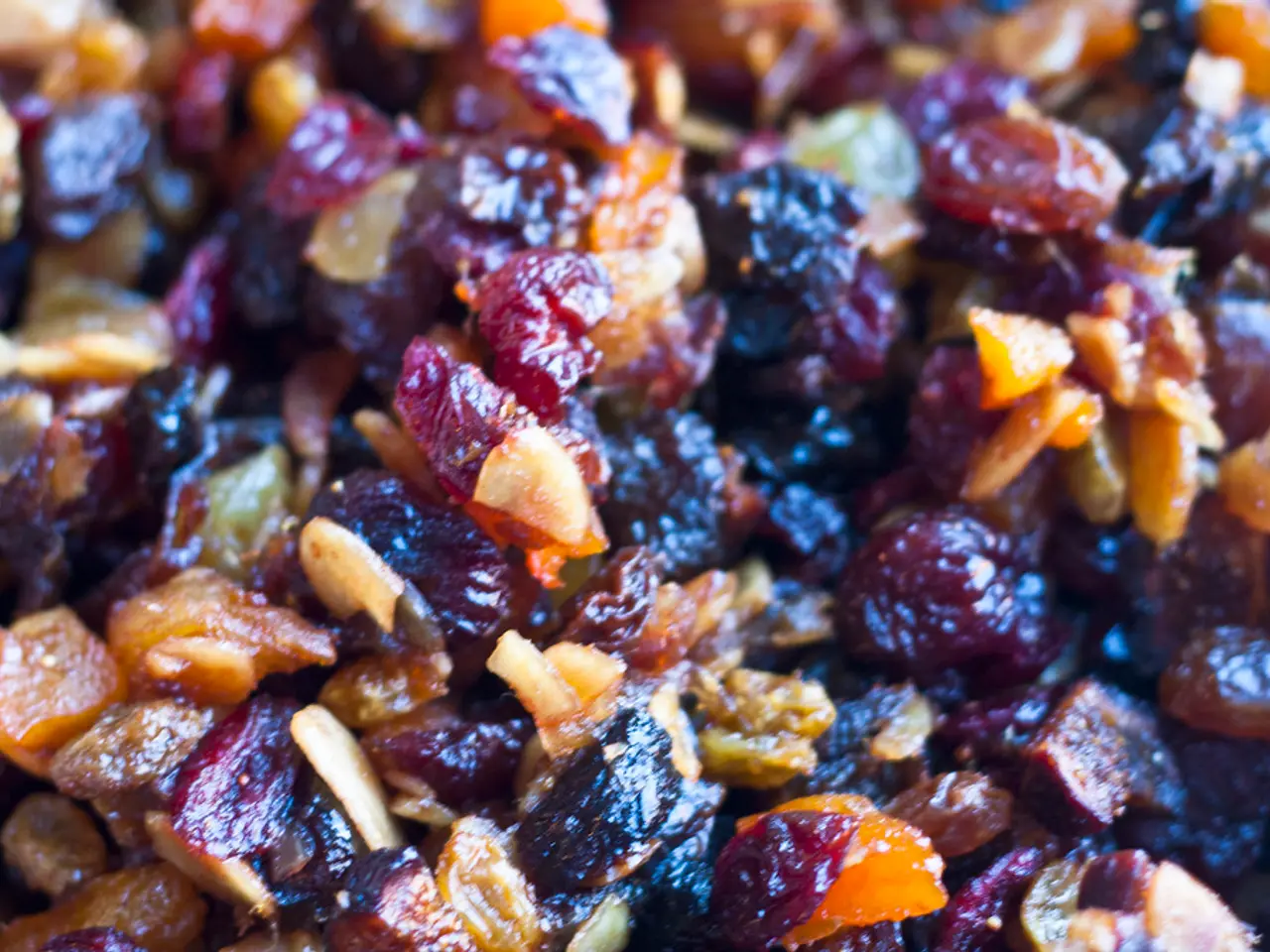Avoid high cholesterol foods like red meat, butter, and full-fat dairy; opt for low-cholesterol options such as fish, nuts, and fruits instead.
In the pursuit of maintaining a healthy heart, managing cholesterol levels is crucial. The American Heart Association (AHA) and other nutritional guidelines offer insightful recommendations for incorporating specific foods into our diets to help lower cholesterol levels.
Unsaturated fats, found in fish, plants, nuts, seeds, beans, and vegetable oils, can aid in increasing the rate at which the liver reabsorbs and breaks down LDL cholesterol. On the other hand, saturated fats, primarily found in meat and dairy products, cause the liver to produce more LDL cholesterol.
To combat high cholesterol, the AHA recommends a variety of foods. Vegetables, rich in fiber, vitamins, and minerals, and some containing cholesterol-lowering plant sterols, should be included in our diets. Fruits, high in fiber and antioxidants, are another excellent choice, as many contain plant sterols that can help lower cholesterol.
Whole grains, such as oats, barley, and brown rice, are good sources of soluble fiber, which can help lower LDL cholesterol. Legumes, including beans, lentils, and peas, are rich in fiber and protein, making them ideal for a heart-healthy diet.
Nuts, particularly almonds, are recommended for their mix of fiber, unsaturated fats, plant sterols, and vitamin E, which can help lower cholesterol. Seeds, such as chia seeds, are another good source of soluble fiber.
Lean proteins, like poultry, fish, and plant-based proteins, are preferable to reduce saturated fat intake. Healthy fats, including vegetable oils and nuts, should also be included in the diet. Low-fat or fat-free dairy products are a better choice to minimize saturated fat intake.
Omega-3 rich foods, such as oily fish like salmon, are beneficial due to their ability to help lower LDL cholesterol. It's essential to limit foods high in saturated fats, such as red meats, full-fat dairy products, and processed meats.
Following dietary patterns like the DASH or Mediterranean diet, which emphasize whole foods and healthy fats while limiting saturated fats and sodium, can further aid in managing cholesterol levels.
When eating out, choosing foods such as salads, steamed foods, grilled fish or chicken, vegetable soups and stews, and plant-based options can help manage cholesterol levels. The healthiest option for peanut butter is natural peanut butter without added oils or sugars.
Cooking techniques such as broiling, grilling, using a rack to drain fat, using wine instead of fat drippings, and skimming off congealed fat can help reduce cholesterol content in meals.
By incorporating these foods and following these guidelines, you can effectively manage and lower your cholesterol levels. The body naturally produces enough cholesterol, so limiting foods containing trans and saturated fats can help manage cholesterol levels. The Dietary Guidelines for Americans (DGA) advise eating as little dietary cholesterol as possible while maintaining a healthy eating pattern.
- Unsaturated fats, predominantly from fish, plants, nuts, seeds, beans, and vegetable oils, can assist the liver in reabsorbing and breaking down LDL cholesterol.
- The AHA recommends a diet rich in vegetables, which are packed with fiber, vitamins, minerals, and some cholesterol-lowering plant sterols, for managing cholesterol.
- Fruits, high in fiber and antioxidants, are another excellent option, as many contain plant sterols that can help decrease cholesterol levels.
- Whole grains, such as oats, barley, and brown rice, are good sources of soluble fiber, which can help lower LDL cholesterol.
- Almonds and chia seeds are recommended due to their mix of fiber, unsaturated fats, plant sterols, and vitamin E, which can aid in lowering cholesterol.
- Lean proteins like poultry, fish, and plant-based proteins, and healthy fats from vegetable oils and nuts, are better choices for a heart-healthy diet than high-saturated fat options like red meats, full-fat dairy products, and processed meats.
- Following dietary patterns like the DASH or Mediterranean diet, which prioritize whole foods, healthy fats, and limit saturated fats and sodium, can further help manage and lower cholesterol levels. When eating out, choosing foods like salads, steamed foods, grilled fish or chicken, vegetable soups and stews, and plant-based options can contribute to maintaining healthy cholesterol levels.




